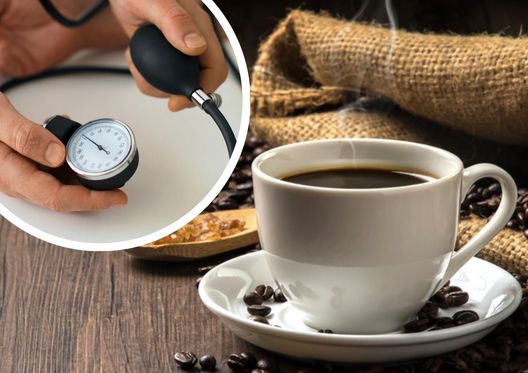Coffee, a beloved beverage enjoyed by millions around the world, not only kick-starts our mornings but also permeates our social and cultural fabric. Amidst its widespread popularity, a prevailing question often surfaces—is coffee a diuretic? This query sparks debates and curiosity alike, as many wonder if their daily cup might contribute to dehydration. Common discussions around whether coffee can dehydrate you or does coffee count as water intake reflect a mix of concern and intrigue about its effects on hydration levels. Such questions are crucial, as understanding the diuretic in coffee and how it influences body fluids can impact how we enjoy this universal favourite responsibly.
What Does 'Diuretic' Mean?
A diuretic is a substance that prompts your body to produce more urine, leading to questions like does coffee dehydrate you and is coffee a diuretic? Here's how diuretics work in the body:
- Increase in Urine Production: Diuretics, including the diuretic in coffee, work by encouraging your kidneys to excrete more sodium into your urine. This process pulls water with it from your blood, thus reducing the amount of fluid in your veins and arteries. This is particularly relevant when considering if caffeine diuretic properties or if is decaffeinated coffee a diuretic.
- Effect on Hydration: The increase in water excretion by diuretics raises concerns such as does caffeine dehydrate you and will caffeine dehydrate you, affecting your body's hydration status. While coffee can dehydrate you, the diuretic effect of caffeine is generally mild, especially for regular consumers, which answers whether coffee is diuretic or not.
- Regular Consumption and Hydration: For regular coffee drinkers, the diuretic effect might not be as pronounced, addressing queries like does coffee dehydrate you. However, questions like does decaf coffee dehydrate you and does decaf tea dehydrate you remain pertinent, as even decaffeinated drinks can have mild diuretic effects.
Understanding how coffee dehydration occurs and whether coffee is dehydrating or if coffee dehydrated can help manage health better. Also, knowing if coffee counts as water intake or if coffee hydrates you provides insights into maintaining optimal hydration levels.

Coffee Composition
Coffee is much more than just a comforting morning beverage; it's a complex mix of many compounds that have significant effects on the body. The key components in coffee, such as caffeine and antioxidants, play essential roles in its health effects and flavour.
- Caffeine: The most well-known ingredient in coffee, caffeine is a powerful stimulant. It affects the central nervous system, which can make you feel more alert and awake. Considering the numerous queries about whether caffeine dehydrates you or will caffeine dehydrate you, it's crucial to understand that while caffeine has diuretic properties, the effect is generally mild for regular drinkers.
- Antioxidants: Coffee is also rich in antioxidants, which help protect your cells from damage. These compounds can contribute to the health benefits of coffee, counteracting some negative perceptions like whether coffee is dehydrating or if coffee can dehydrate you.
- Other Components: Beyond caffeine and antioxidants, coffee contains thousands of other chemicals, including acids and oils, which can influence everything from the flavour profile to how much coffee dehydrates or if is coffee a diuretic.
Understanding these components helps clarify common questions like is caffeine a diuretic and does coffee counts as water intake, providing a more comprehensive view of this popular beverage’s impact on hydration and health.
Comparing Coffee with Other Beverages
Coffee is a popular beverage enjoyed by millions worldwide, and its unique composition contributes to its various effects on our bodies. Understanding the key components of coffee and its impacts can help clarify common questions about whether coffee can dehydrate you if coffee is a diuretic, and how it affects overall health.
|
Component |
Explanation |
Effects |
Results on Body |
|
Caffeine |
The primary stimulant in coffee. |
Increases alertness and energy. |
Can lead to increased urine production, mild diuretic effect, and potential for dehydration if not balanced with water intake. |
|
Antioxidants |
Compounds that protect cells from damage. |
Contribute to overall health benefits, counteracting some negative perceptions about coffee dehydration and whether coffee is dehydrating. |
Protect cells from oxidative stress, reduce inflammation, and support overall health. |
|
Chlorogenic Acids |
A type of antioxidant specific to coffee. |
Helps reduce inflammation and may contribute to the prevention of certain diseases. Can also influence whether coffee counts as water intake or does coffee hydrate you. |
Can improve vascular function and lower blood pressure, adding to coffee's health benefits. |
|
Diterpenes |
Compounds like cafestol and kahweol are found in coffee oils. |
Have been shown to raise cholesterol levels in some studies. They are filtered out by paper filters, thus affecting dehydrated coffee or coffee dehydration concerns. |
May raise LDL cholesterol levels if consumed in large quantities without paper filters. |
|
Vitamins and Minerals |
Includes small amounts of B vitamins, magnesium, and potassium. |
Essential for various bodily functions. These nutrients support overall health, possibly alleviating concerns such as does coffee dehydrates you and is coffee hydrating. |
Support metabolic processes, muscle function, and nerve function, contributing positively to overall health. |
Understanding these components helps answer various questions about coffee's effects on the body, including whether coffee can dehydrate you, is decaf coffee a diuretic, or does coffee counts as water intake. Knowing the composition of coffee can guide you in enjoying your cup while being mindful of its impact on hydration and health.

How Coffee Affects Hydration
Coffee is a popular drink, but many people wonder about its impact on hydration. The main concern revolves around whether coffee can dehydrate you and how it affects your body's fluid balance. Understanding the role of caffeine and other key components in coffee can help clarify these effects.
- Fluid Balance: Coffee contains caffeine, which is known for its mild diuretic effect. This means it can increase urine production, leading to concerns like does coffee dehydrate you or does caffeine dehydrate you. However, for regular coffee drinkers, the body adapts, and the diuretic effect is less pronounced.
- Caffeine's Role: Caffeine diuretic properties can cause your kidneys to release more sodium and water into your urine. This process raises questions like will caffeine dehydrate you and does coffee make you pee more often. Although caffeine does have a diuretic effect, it does not significantly impact overall hydration when consumed in moderate amounts.
- Other Components: Besides caffeine, coffee contains antioxidants and other compounds like chlorogenic acids. These components contribute to health benefits and can counterbalance some negative effects. Understanding this helps address whether coffee counts as water intake or does coffee hydrates you.
- Regular Consumption: For those who drink coffee regularly, the body becomes accustomed to the caffeine, reducing its diuretic effect. This adaptation can alleviate concerns like is coffee dehydrating or is coffee a diuretic. It suggests that coffee can be part of your daily fluid intake without causing significant dehydration.
- Decaf Options: Drinking decaffeinated coffee or tea raises different questions, such as is decaf coffee a diuretic or does decaf tea dehydrates you. Decaffeinated options have much lower caffeine levels, so their diuretic effect is minimal, making them less likely to impact your hydration status. You can go for Decaf Cofee from Presto we assure best quality of decaf coffee for you!
Comparing Coffee with Other Beverages
When considering hydration and the diuretic effects of different drinks, it’s useful to compare coffee with other common beverages. This comparison helps answer questions like is coffee a diuretic, does coffee dehydrate you, and how it stacks up against other beverages. The table below provides a comparison of coffee’s diuretic effect with other popular drinks.
|
Beverage |
Diuretic Effect |
Hydration Level |
Key Components |
Impact on Body |
|
Coffee |
Moderate (due to caffeine) |
Good when balanced with water |
Caffeine, Antioxidants, Chlorogenic Acids |
Caffeine diuretic effect increases urine production, can lead to coffee dehydration if not balanced. |
|
Tea (Caffeinated) |
Mild to moderate (due to caffeine) |
Good |
Caffeine, Antioxidants, Tannins |
Mild diuretic in coffee effect, generally good for hydration with moderate consumption. |
|
Decaffeinated Coffee |
Very mild |
Excellent |
Antioxidants, Chlorogenic Acids |
Minimal diuretic effect, good for hydration. |
|
Water |
None |
Excellent |
None |
No diuretic effect, best for hydration. |
|
Soft Drinks |
Mild to moderate (due to caffeine, sugar content) |
Poor to moderate |
Caffeine (in some), Sugar, Carbonation |
Can lead to dehydration from caffeine and high sugar content, less hydrating. |
|
Alcohol |
Strong |
Poor |
Ethanol |
Strong diuretic effect, significant dehydration risk. |
|
Sports Drinks |
None |
Excellent |
Electrolytes, Sugars |
No diuretic effect, formulated for optimal hydration. |
|
Fruit Juices |
None |
Good |
Natural Sugars, Vitamins |
Hydrating but can be high in sugar; moderate consumption is best. |
|
Milk |
None |
Good |
Proteins, Fats, Sugars |
Hydrating with nutritional benefits; no diuretic effect. |
|
Energy Drinks |
Moderate to strong (due to high caffeine content) |
Poor to moderate |
High caffeine, Sugars, Taurine |
Strong caffeine diuretic effect, can lead to dehydration if consumed in excess. |
|
Herbal Teas |
None |
Excellent |
Antioxidants, Various Herbs |
Hydrating with no diuretic effect; good alternative to caffeinated beverages. |

Guidelines for Coffee Consumption
Enjoying coffee is a daily ritual for many, but understanding how to balance coffee intake with proper hydration can help mitigate any potential dehydrating effects. Here are some recommended coffee intake levels and tips to ensure you stay well-hydrated while enjoying your favourite brew.
- Recommended Coffee Intake: For most adults, moderate coffee consumption of up to 3-4 cups per day is generally considered safe and can even offer some health benefits. However, the individual response to caffeine can vary, so it's important to listen to your body and adjust accordingly.
- Stay Hydrated: To counteract the mild diuretic in coffee effect, drink an equal amount of water for each cup of coffee consumed. This helps balance your fluid levels and prevents coffee dehydration.
- Incorporate Decaf: Mixing in decaffeinated coffee can help reduce your overall caffeine intake while still allowing you to enjoy the flavour and routine of coffee. This can answer concerns like is decaf coffee a diuretic and does decaf coffee dehydrate you.
- Monitor Your Body's Signals: Pay attention to signs of dehydration such as dry mouth, headaches, and decreased urine output. If you notice these symptoms, increase your water intake and consider cutting back on coffee.
- Electrolyte Balance: Incorporate electrolyte-rich drinks like coconut water or sports drinks into your routine to maintain proper hydration, especially if you consume large amounts of coffee. This can help mitigate the effects of dehydration from caffeine.
- Avoid Sugary Coffee Drinks: Beverages like flavoured lattes and mochas can add a lot of sugar to your diet, which can exacerbate dehydration. Opt for black coffee or use a minimal amount of natural sweeteners.
- Timing Matters: Drinking coffee in the morning or early afternoon can help ensure that the diuretic effect doesn't disrupt your sleep cycle, which is crucial for overall hydration and health.
- Limit Alcohol with Coffee: Combining coffee with alcohol, such as in certain cocktails, can lead to increased dehydration. Alcohol has a strong diuretic effect, so it’s best to consume it separately from coffee.
- Use a Paper Filter: If you're concerned about cholesterol levels due to the presence of diterpenes in coffee, use a paper filter to remove these compounds. This method does not significantly alter the diuretic effect but can be beneficial for heart health.
Following these guidelines can help you enjoy your coffee while maintaining good hydration and overall health, addressing common concerns such as does coffee dehydrate you, will caffeine dehydrate you, and is coffee dehydrating.
Myths vs. Facts
There are many myths about coffee and its effects on dehydration. Let’s debunk these myths with some surprising facts to help you understand how coffee really affects your body.
Myth: Coffee Dehydrates You
- Fact: While coffee has a mild diuretic effect due to its caffeine, it does not significantly dehydrate you. In moderate amounts, coffee can still contribute to your daily fluid intake. So, does coffee dehydrate you? Not as much as you might think!
Myth: You Should Avoid Coffee to Stay Hydrated
- Fact: Coffee can be part of your hydration plan. The water in coffee contributes to your fluid intake. For most people, drinking coffee in moderation does not cause significant dehydration. This answers the question does coffee count as water intake with a yes.
Myth: Decaf Coffee and Tea Are Just as Dehydrating
- Fact: Decaf coffee and decaf tea have very minimal diuretic effects compared to regular coffee. They can be good options if you’re worried about dehydration. So, is decaf coffee a diuretic? Only very mildly.
Myth: Drinking Coffee Leads to Severe Dehydration
- Fact: The caffeine diuretic effect is mild and temporary. For regular coffee drinkers, the body adjusts, and the impact on fluid balance is minimal. It’s not true that coffee can dehydrate you severely.
Myth: Coffee Makes You Pee a Lot More Than Other Drinks
- Fact: While coffee can increase urine production, it’s not significantly more than other caffeinated beverages. The diuretic in coffee is comparable to that in tea and some soft drinks.
Myth: Drinking Coffee in Hot Weather is Bad for Hydration
- Fact: Coffee can still be enjoyed in hot weather. Just be sure to balance it with plenty of water to stay hydrated. Concerns about coffee dehydration are often overstated.
Surprisingly, coffee hydrates you more than it dehydrates. Understanding these myths and facts helps clear up misconceptions about coffee's diuretic properties and its true impact on your hydration.
Conclusion
Understanding the relationship between coffee and hydration helps clear up many common misconceptions. While coffee does have a mild diuretic effect due to its caffeine content, it can still contribute to your daily fluid intake and does not cause significant dehydration for most people. Whether you're enjoying regular coffee or decaf coffee, balancing your intake with water and listening to your body's signals will keep you well-hydrated. Next time you reach for your cup of coffee, rest assured that you can enjoy it without worrying too much about coffee dehydration. For high-quality coffee that you can enjoy every day, visit Presto Coffee. Buy your favourite blend today and savour the perfect cup!
Frequently Asked Questions
1. How much coffee should I drink each day?
It’s best to keep your coffee intake to about 3-4 cups a day. This amount helps you enjoy the benefits without worrying too much about coffee dehydration.
2. Can I drink coffee if I’m on medication?
Some medications can interact with caffeine. It’s always a good idea to check with your doctor if you have concerns about is coffee a diuretic and how it might affect your medication.
3. What’s the best way to store coffee to keep it fresh?
Store your coffee in an airtight container in a cool, dark place. This keeps it fresh and tasty, preventing it from becoming stale or picking up unwanted odours.
4. Does iced coffee have the same effects as hot coffee?
Yes, iced coffee has the same caffeine content and can have a similar diuretic effect as hot coffee. It’s just as refreshing and enjoyable!
5. Why do I sometimes feel jittery after drinking coffee?
The caffeine in coffee can stimulate your nervous system, causing jitters if you drink too much or if you’re sensitive to caffeine. Try reducing your intake or switching to decaf coffee.
6. Can I drink coffee before exercising?
Yes, many people find that a cup of coffee before a workout boosts their energy and performance. Just be sure to drink water as well to stay hydrated, as coffee can dehydrate you slightly.
7. What should I do if coffee upsets my stomach?
If coffee causes stomach discomfort, try drinking it with food, switching to a lower-acid blend, or opting for decaf coffee. This can help you enjoy your coffee without any stomach issues.
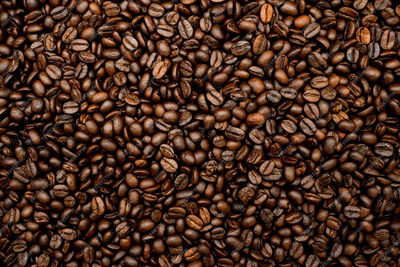
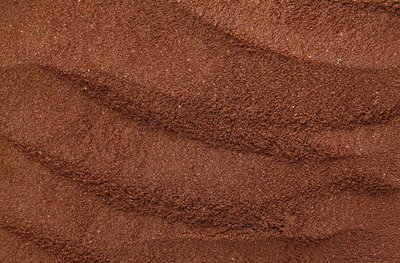
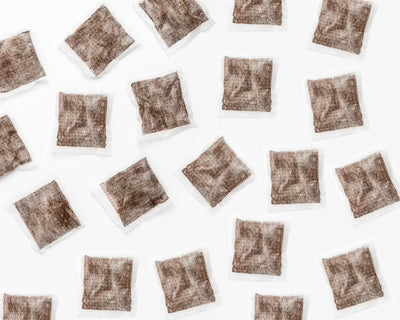
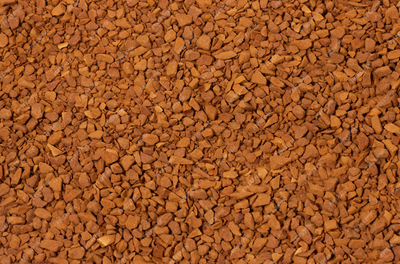


 Log in
Log in
